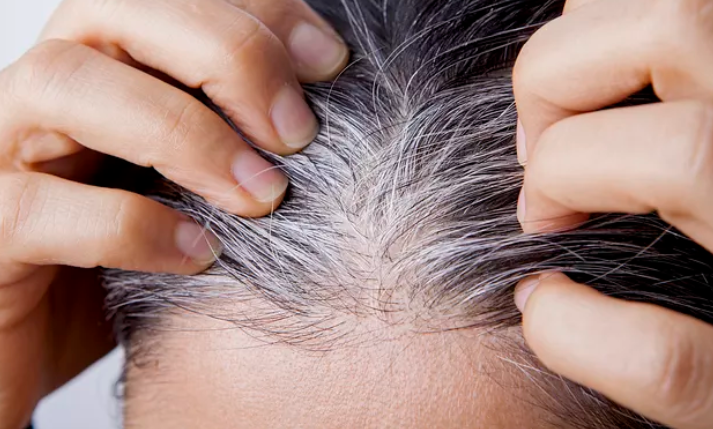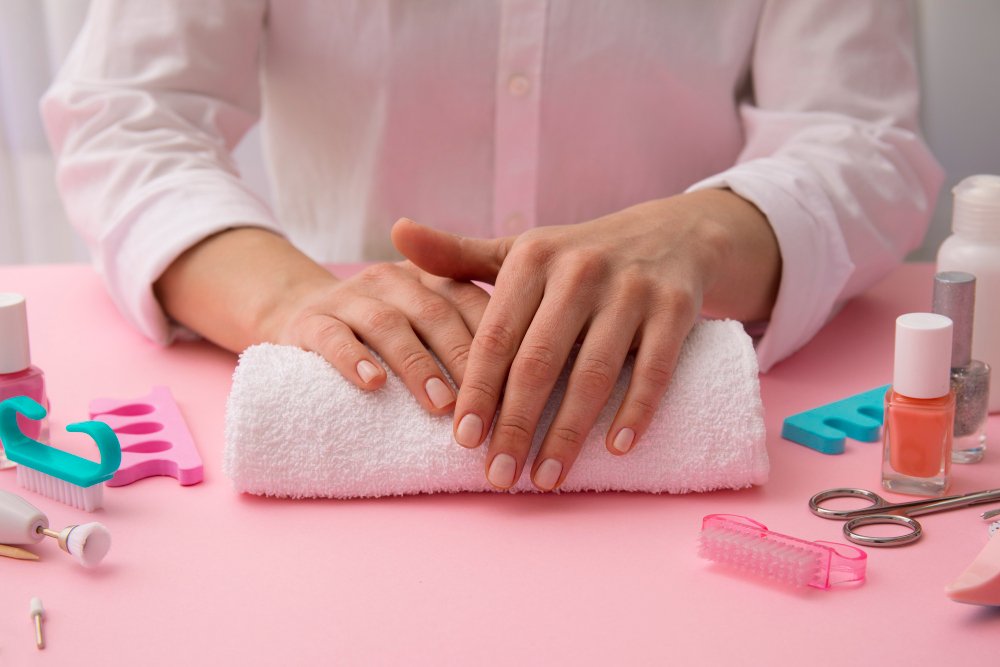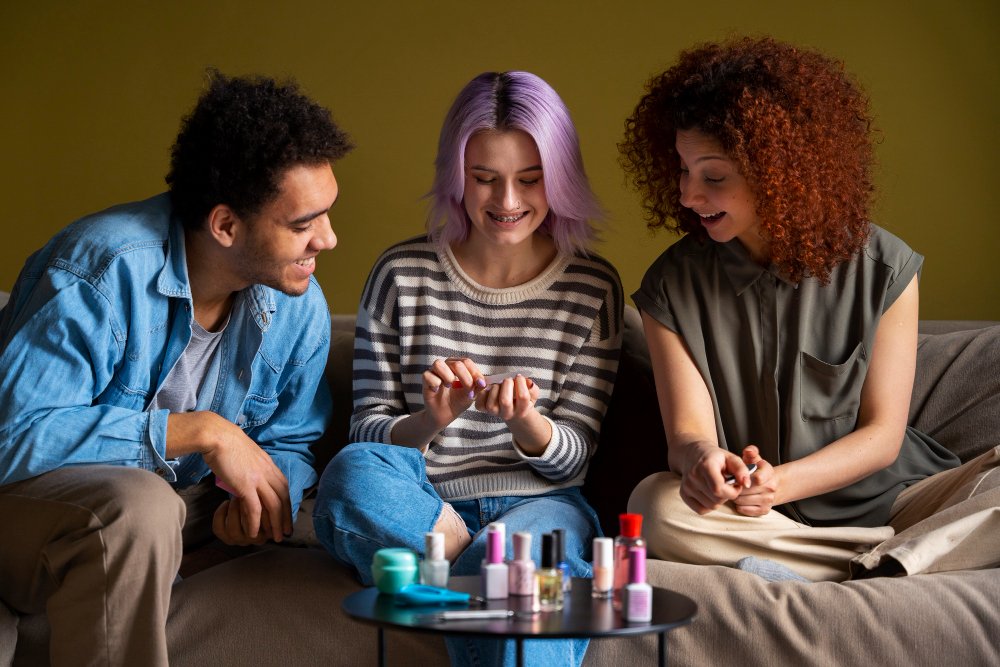Noticing white or grey strands popping up earlier than expected? You’re not alone. Premature white hair is becoming increasingly common, even among people in their 20s and 30s. While it’s often harmless, it can be frustrating, especially when it feels like it’s showing up well before its time.
Let’s take a closer look at what causes premature white hair and how you can manage or slow down the process.
What Causes White Hair at an Early Age?

Noticing strands of white hair well before your 40s? You’re not alone. Premature white hair is a growing concern for many, and it can affect your confidence and overall self-image. The good news? By understanding what causes white hair at an early age, you can take steps to slow down the process and maintain your natural hair colour for as long as possible.
In this blog, we’ll explore the key reasons behind premature greying and offer practical solutions to help you protect your hair. Let’s dive in.
1. Genetics
Genetics is one of the most influential factors in determining when your hair will begin to turn white. If your parents or grandparents experienced premature greying, there’s a high chance you might too. This is because the genes you inherit can affect melanin production—the pigment responsible for your hair’s colour—causing it to fade sooner than expected.
Solution:
While you can’t change your genetic makeup, understanding its role can help you manage your expectations and focus on what can be controlled. Embrace your natural hair journey while exploring colour treatments or styling options that enhance your look. Also, prioritise scalp and hair care to maintain healthy strands.
2. Nutritional Deficiencies
A lack of essential vitamins and minerals is one of the leading causes of premature white hair. Deficiencies in Vitamin B12, iron, copper, and zinc can disrupt melanin production, making hair lose its colour sooner.
How to Fix It:
Ensure your diet is rich in hair-friendly nutrients. Include foods like eggs, leafy greens, nuts, seeds, legumes, and lean proteins. If needed, consult a healthcare professional about taking supplements. A well-balanced diet not only supports hair pigmentation but also improves hair texture and growth.
3. Stress and Its Connection to White Hair
Chronic stress affects your overall health, and your hair is no exception. While stress may not be the sole cause of white hair, it can definitely speed up the greying process by disrupting the normal function of hair follicles and reducing melanin production.
How to Manage It:
Incorporate stress-relief practices into your daily routine, like yoga, meditation, regular exercise, or simply taking time to relax. Managing stress doesn’t just benefit your hair; it improves your overall well-being.
4. Environmental Factors and Lifestyle Choices
Your lifestyle and environment significantly impact the health and colour of your hair. Pollution, harsh chemical exposure, and prolonged UV radiation can weaken hair follicles and accelerate premature greying. Smoking is particularly damaging, increasing oxidative stress that directly affects melanin levels in the hair.
Combat the Damage:
- Wear a hat or scarf to shield your hair from sun exposure.
- Use hair products with UV protection.
- Avoid harsh chemical treatments or excessive heat styling.
- Quit smoking if you haven’t already—your hair (and overall health) will thank you.
Premature White Hair Isn’t Inevitable
While some factors like genetics are out of your control, others—like diet, stress, and lifestyle—are well within your reach. By addressing these areas early on, you can slow down or even prevent further greying.
Build a Dedicated Hair Care Routine with O3+
Understanding the causes of premature white hair is just the first step. Taking proactive action is what truly makes a difference.
O3+ offers a specially formulated hair care range that’s designed to nourish, protect, and strengthen your hair from root to tip. Whether you’re dealing with dullness, dryness, or early greying, our products support healthier, more vibrant hair.
Explore O3+ hair care solutions today and take control of your hair’s future—because your strands deserve the best.
Final Thoughts
Premature white hair can feel like an unwelcome surprise, but it’s usually a sign that your body is reacting to internal or external triggers. By understanding the causes, you can take proactive steps to support your overall hair health. And remember, white hair is natural, beautiful, and can be just as stunning as any other shade when you wear it with confidence.










